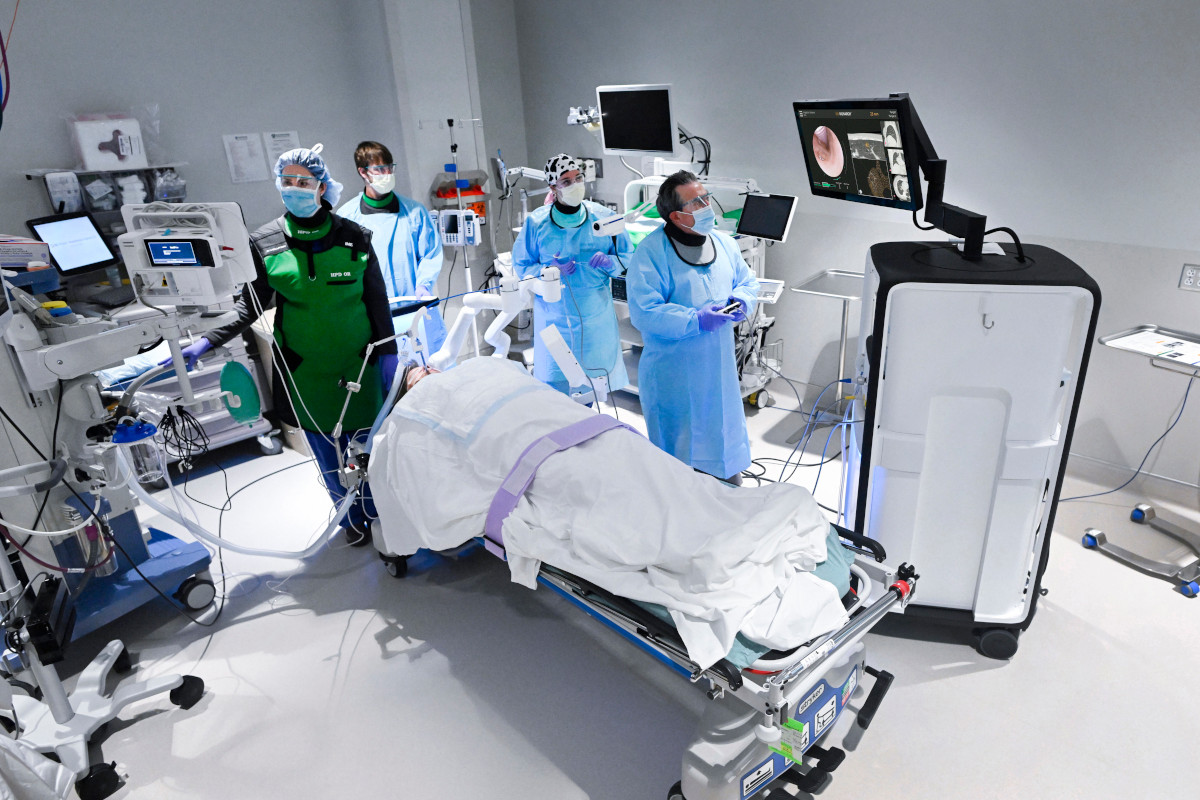Penn State Health first in central Pennsylvania to use new technology for earlier lung cancer diagnoses

Penn State Health Hampden Medical Center is the first hospital in central Pennsylvania to use a new robot-assisted bronchoscopy system that can detect lung cancer at its earliest stages. The Monarch Platform robot-assisted bronchoscopy is a minimally-invasive procedure that is able to reach small nodules better than traditional methods and can lead to earlier diagnosis of lung nodules.
The Monarch Platform, developed by Auris Health, is the first commercial robotic platform for therapeutic and diagnostic bronchoscopic procedures. Its design allows physicians to diagnose small peripheral lung nodules that are typically hard-to-reach through regular bronchoscopy. Accurately accessing and diagnosing lung nodules enables physicians to perform earlier biopsies to diagnose and treat lung cancer faster.
“Lung cancer is the leading cause of cancer deaths worldwide. More than 80% of people with advanced lung cancer do not survive five years after diagnosis. The stage at diagnosis is the key to better outcomes – the majority of people diagnosed with early stage lung cancer do survive,” said Dr. Chris Shaffer, a pulmonologist at Penn State Health Hampden Medical Center. “With this technology, we will detect early signs of lung cancer and get critically-needed treatment much faster. This is a game changer.”
The Monarch Platform combines traditional camera views inside the lung with computer-assisted navigation based on 3D models of the patient’s own lung anatomy. This is the first tool to offer pulmonologists both direct visualization of the lung and software to guide the scope to a small mass.
“We look forward to implementing this system to enhance physician capabilities and, more importantly, improve patient outcomes,” Shaffer said.
Pulmonologists at Hampden Medical Center began using the Monarch Platform for navigational bronchoscopy cases in mid-May. More information on care for lung and respiratory disease at Penn State Health is available here.
If you're having trouble accessing this content, or would like it in another format, please email Penn State Health Marketing & Communications.

